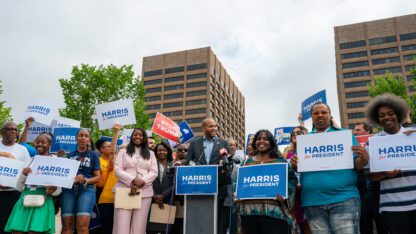In Atlanta, It’s More Complicated Than Trees Versus Developers
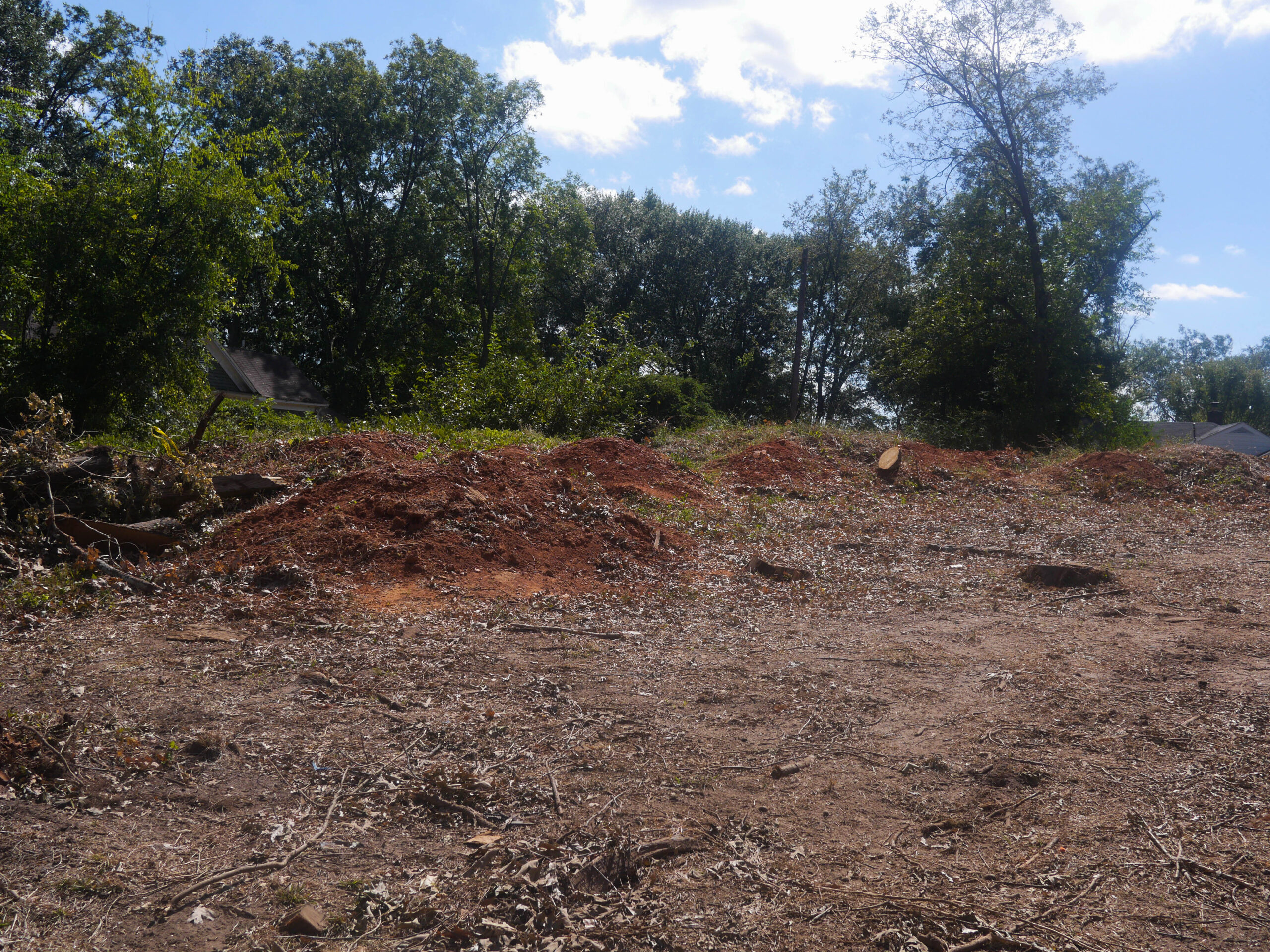
In Reynoldstown – like in much of Atlanta – longtime residents are seeing their neighborhoods change. Trees have been cleared to make way for new construction.
Al Such / WABE
There used to be trees across the street from Portia Webb’s house.
She’s lived in the Atlanta neighborhood of Reynoldstown for 50 years, she says. There was a big old house on the lot across the street. And up until a few years ago a ministry that was around the corner would bring kids to the lot to play.
“When they’d get out of school. Plant little veggie gardens over there,” she says. “A lot of habitat lived over there. The squirrels and the hawks.”
The ministry that worked with the kids has moved; now there are townhomes on that spot around the corner. And the trees in the lot across the street are gone, too.
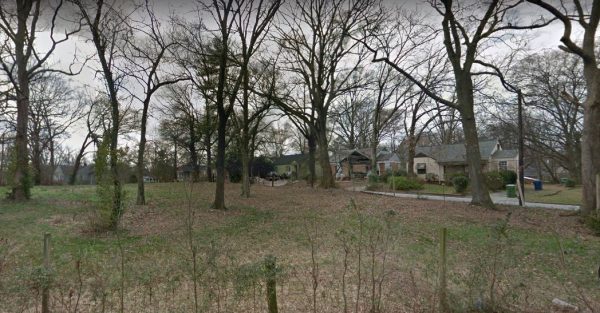
New Construction
“Piles of red clay. It looks like a tornado came through,” says Greg Levine, co-executive director of the non-profit Trees Atlanta.
The lot will have a development with townhomes and studio apartments. Construction hasn’t started yet, so Levine is looking at tree stumps.
“These trees are probably at least 150 to 200 years old,” he said. “Some southern red, some white oak trees, some post oaks and a few hickories. And they were beautiful trees.”
This is not an unusual scene around Atlanta these days, with construction booming.
“You look across the street, you see a new house with two, three x’s on the trees,” he says, meaning the trees across the street, a couple doors down from Webb’s house, are getting cut down, too.
“I think at stake here is the long-term viability of the city. If we start losing our forest cover, people are going to want to live here less, the people that do live here aren’t going to be as healthy, it’s not going to be as pleasant a place to be,” Levine said.
Trees provide shade. They soak up air pollution. They help reduce flooding from storms.
In 2008, a survey found that Atlanta is nearly 50 percent covered by tree canopy. Compared to most cities, that’s a lot. Levine said a similar study conducted in 2014 that will be released sometime this year will probably show not a ton of change. But between 2014 and now, he thinks the city probably has lost tree cover.
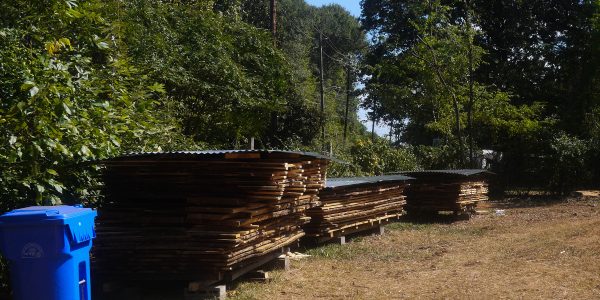
‘Not Trees Against Developers’
“I would say we’re at a critical time to get our zoning and ordinance right,” Levine said. “A critical time for people to work together and come up with solutions.”
Atlanta plans to revisit its tree ordinance. Compared to other cities, Atlanta’s ordinance is already pretty strong, Levine said. Still, it didn’t save the trees on this lot in Reynoldstown.
“It’s not trees against developers,” Levine said. He thinks it is possible to develop more while still saving trees. “There’s no doubt that we can have both, it’s just getting balance, and right now I don’t think it’s balanced.”
The developer working on this lot, Christopher Leerssen said he can see how Levine would think that trees are getting the short end of the stick. And he says he saves trees when he can, but it didn’t work out on this spot.
Leerssen, an architect and builder, says he’s lived in this neighborhood where this lot is, Reynoldstown, for 17 years. He came over to the construction site on his bicycle.
“Within reason, I will save every tree within my power,” he says. But some of the trees on this lost were old and sick, he said, and some were in the way of the development.
“Those two oaks were beautiful,” he says, looking towards a group of stumps. “They’re right smack dab in the middle.”
And what he’s building here isn’t a few homes with backyards that could accommodate the big old trees. This neighborhood is near the BeltLine and a MARTA station. So Leerssen’s building for more density, which, he says, is what the city wants — and what his financial backers want.
“Bottom line, we need places to put people. We need places to put their businesses, we need places to put their houses,” he said. “I feel very strongly if a tree comes in the way of a good plan, then it should come down.”
“I feel very strongly if a tree comes
in the way of a good plan,
then it should come down.”
– Christopher Leerssen
He said planning around the trees would have driven up the prices on the units he’s building. He was constrained by sidewalks and utilities. And there are other factors weighing in on how and where he builds: transportation, population, business, politics.
“Here’s another thing that trees are pitted against. You want to know the trees’ biggest damn enemy? It’s the f’ing car,” he says. “Parking spaces rule. If I had said, ‘Listen ya’ll, I only want to do half the spaces required, but I want to save a bunch of trees,’ how do you think that would have gone? It wouldn’t have gone well.”
Leerssen and Trees Atlanta’s Levine both say they’d like to see more investment in public parks and forests. They both like Atlanta’s planning director, Tim Keane, and the ideas he has about the future of the city.
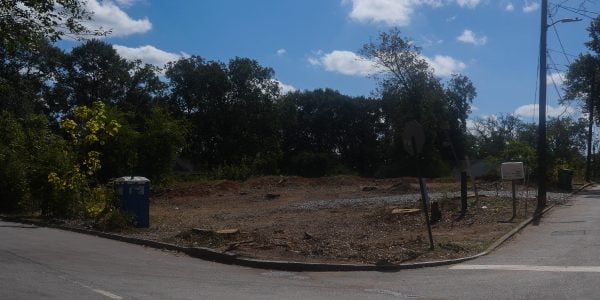
Growing Atlanta
“Change is coming,” Webb said on her porch. “Nothing stays the same.”
Her neighborhood has already changed a lot. She says she and her mom are one of the last black families on their street. Property taxes are going up.
And the trees that used to be across from her? Webb says when they got cut down, that’s when she realized how much habitat the lot had, for the birds and the squirrels. She says the squirrels all ran across the street and hopped over the fence behind her house, looking for a new place to live.
“I guess after a while me and my momma [are] going to have to go, too, like the animals,” she says. “We won’t be able to afford to keep staying here, with the taxes going up.”
But she says, she’s not mad. If the prices is right, she’ll sell.
“Atlanta is growing, it’s growing,” she says. “Yes it is, it’s growing.”
Atlanta voters are preparing to elect a new mayor and replace nearly half the City Council. In this moment of transition, WABE is exploring “The Future of Atlanta.”


